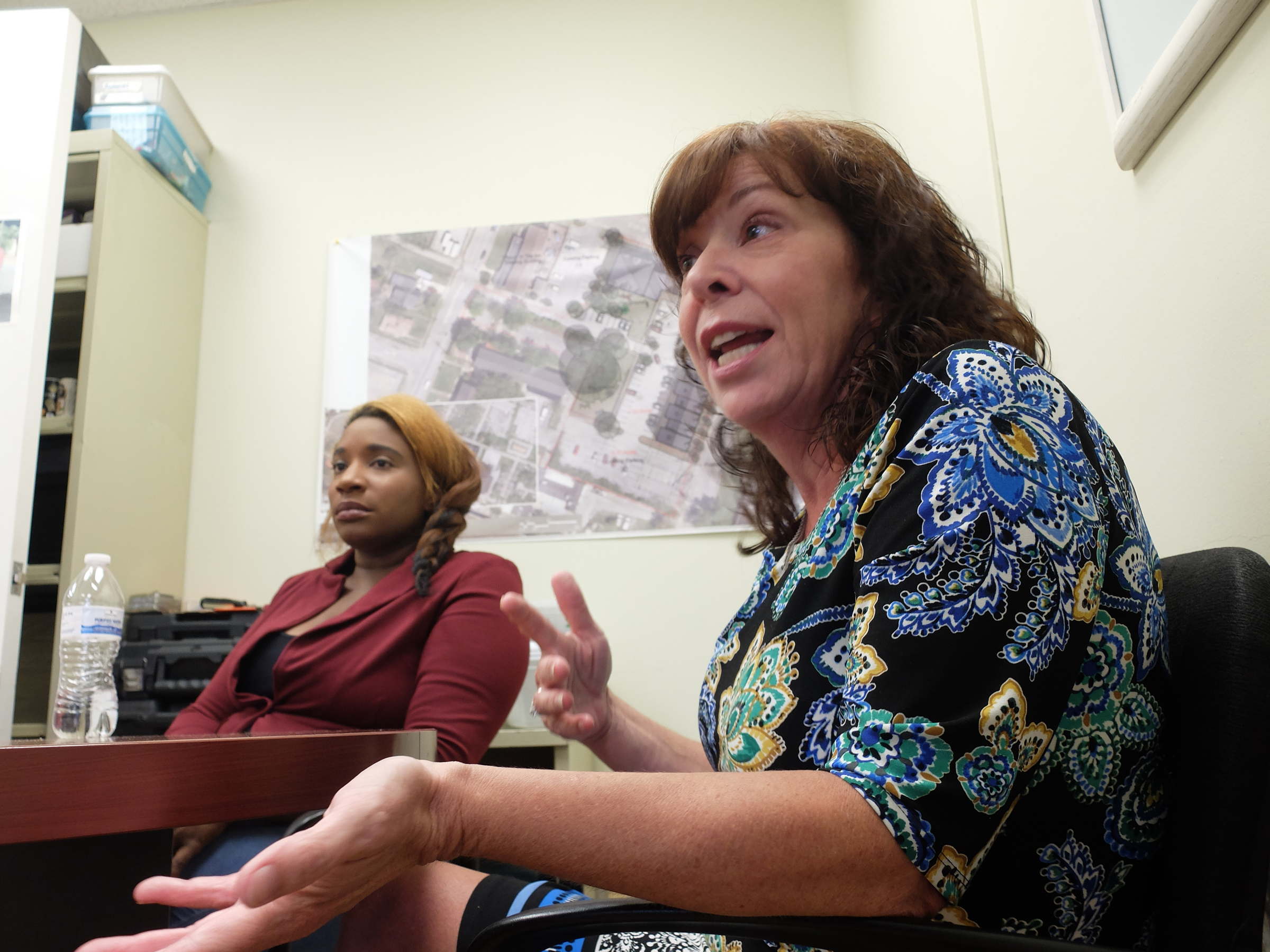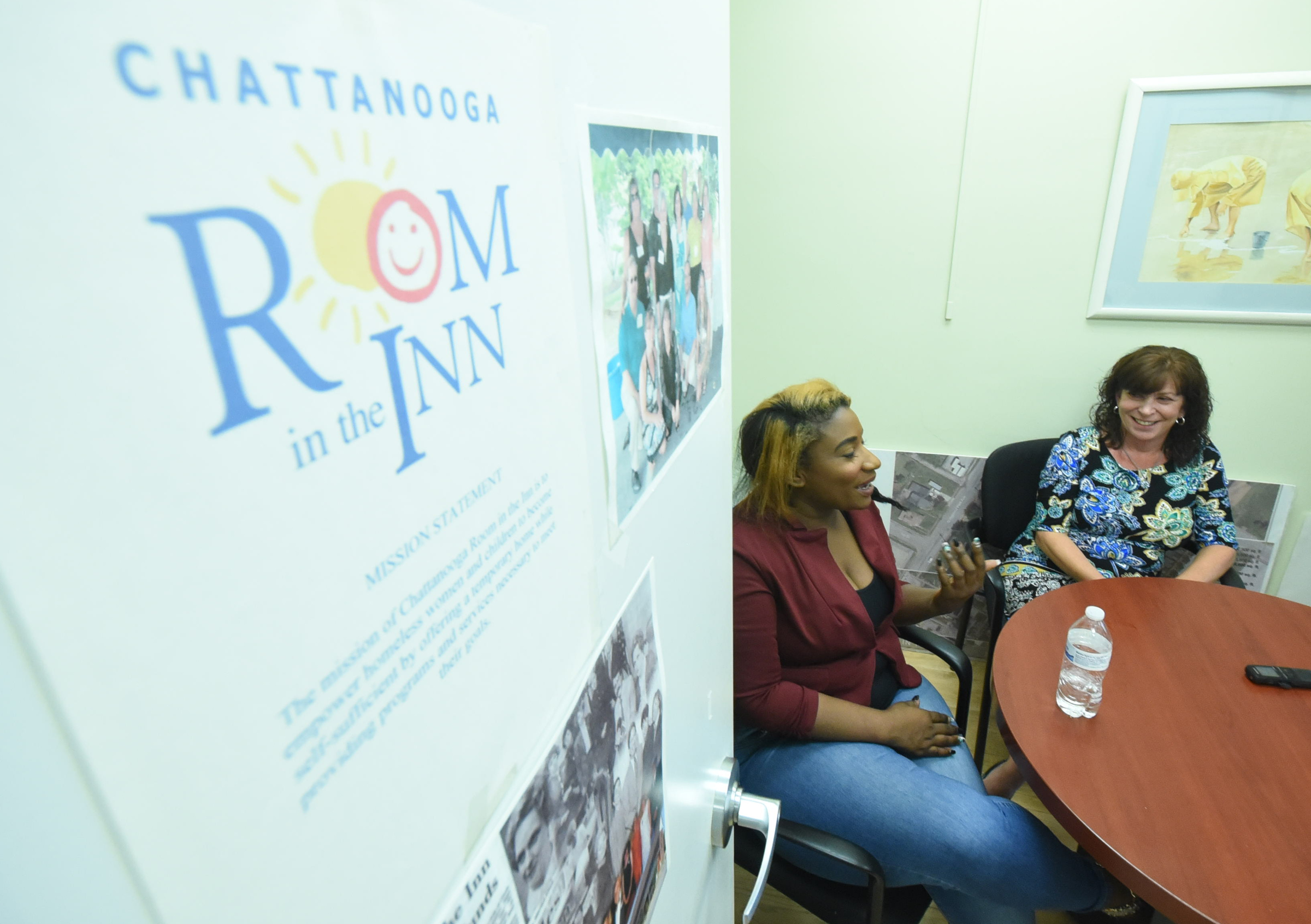Christine Dayoub sticks her head in the doorway and flashes a smile to greet visitors at Chattanooga Room in the Inn.
"When I graduate, I'm going to have my own apartment. I've got four months," says the formerly homeless woman. "That's the plan, so wish me luck."
When she arrived at the women's transitional shelter, Dayoub, a single mom with a baby, had no education, no work prospects, no home. She's leaving with a GED, a job and a goal to get a college degree.
She is among more than 4,000 women that Chattanooga Room in the Inn has housed since its founding. This year, the nonprofit is celebrating not just its 30th anniversary but the possibility of seeing a 100 percent completion rate for all the women it is housing.
That's significant because, since 2006, some 90 percent of the women who graduate from the program never experience homelessness again, says Erin Creal, executive director.
"In essence, we prevent the recurrence of homelessness by teaching them the skills they need to remain permanently housed," she says.
Chattanooga Room in the Inn officially began on Aug. 31, 1988, offering overnight shelter at seven area churches. In 1992, it moved into its own facility and developed into a fully operational shelter open 24 hours a day, 365 days a year.
Homeless women in need of help (and their children) take part in a three- to nine-month residential program, free of charge, that offers transitional housing, three meals a day, access to affordable or free health care, life skills training, parenting classes, mentoring, assistance with finding affordable housing and case-management services.
Having those months of stability helps women increase their opportunities and chances for independence once they leave, say those involved in the program.
They change the way you look at things, says Monique Roberts, a 2009 Room in the Inn graduate and board member.
She now lives in a town home and holds a full-time job earning enough income to need no public assistance.
Creal is especially proud of reaching a 100 percent completion rate, the first time that has happened in her 14-year tenure.
That's huge, she says.
Only 20 percent of woman graduated in the past.
Improving the graduation rate has been one of the agency's biggest obstacles, Creal says. She credits improvement to Chattanooga Room in the Inn changing the way it sees residents. Instead of focusing on rules, Room in the Inn seeks to establish relationships.
Change started in 2012 after the staff had training on how to care for people who have experienced trauma.
"We've become trauma-informed," says Creal. "It's not so much a model of how to operate, but more of a mindset that the relationships we have with women are more important than enforcing the rules on them."
More than 90 percent of women who experience homelessness have suffered abuse in their past. Rules might be a trigger for their trauma, says Creal.
The agency still has rules to make sure people are safe, but staff members don't get bent out of shape when a women is late for curfew or doesn't meet with her case manager. There are natural consequences to some choices, and the staff doesn't have to enforce them.
Before Room in the Inn was trauma-informed, five write-ups for breaking the rules would land a woman back out on the street. Now staff members have conversation with women about what's causing their action. A lot of times staff learn that something happened outside of the client's control. It's better working that way to allow the women to receive the help offered.
Since 2012 when the focus toward establishing relationships started, turnover has reduced significantly. This is the first time in at least a decade that all 10 women in the house are on schedule to graduate, says Creal.
Contact Yolanda Putman at yputman@timesfreepress.com or 423-757-6431.


